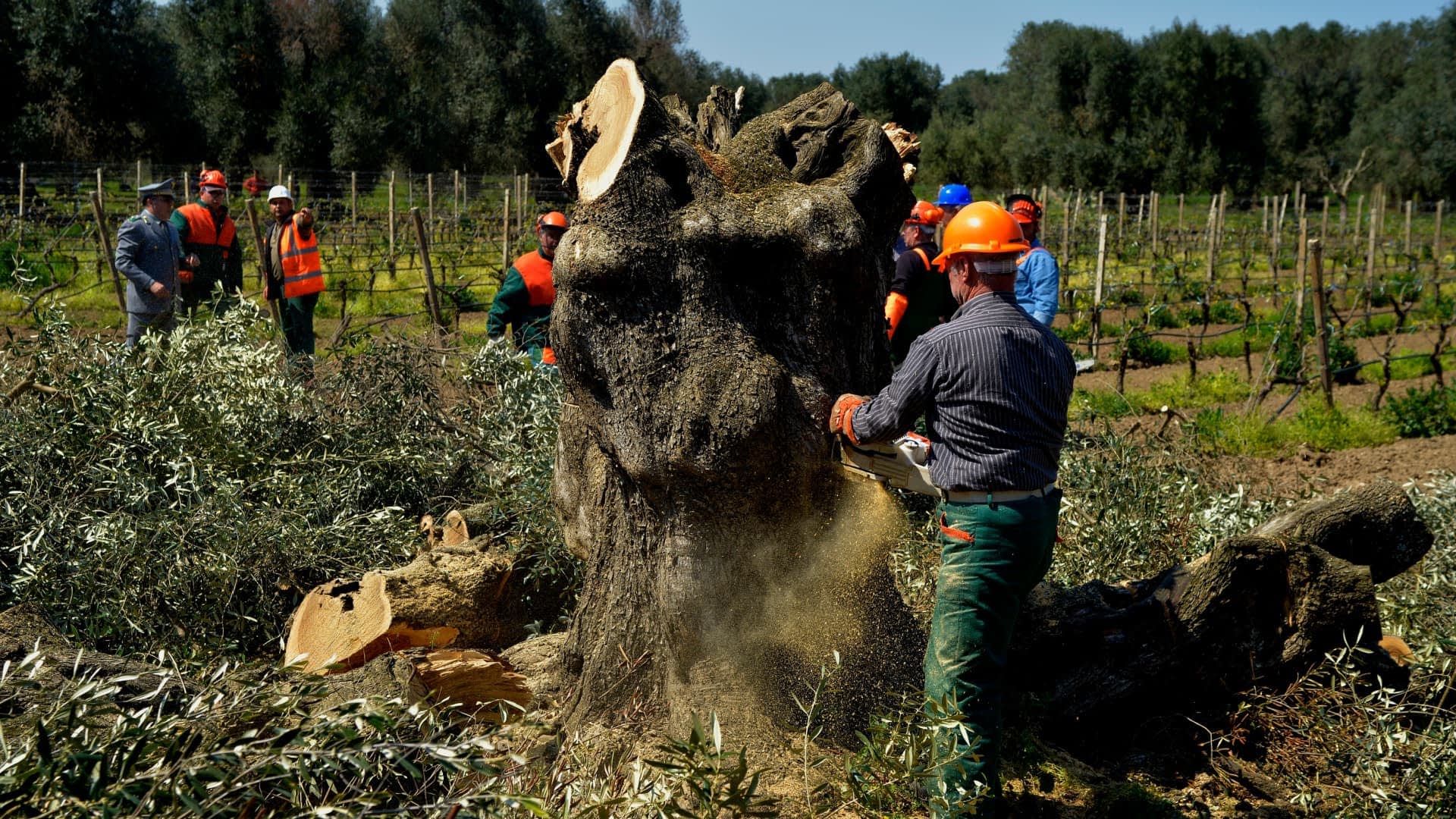A research team at the Institute of Plant Molecular and Cellular Biology has created a groundbreaking technology for precise and long-lasting inactivation of plant genes using a single spray application.
The findings, published in Nucleic Acids Research, detail an innovative approach employing a benign virus that releases custom-designed small RNA molecules to selectively silence target genes without altering the plant’s genetic makeup.
This feature holds significant importance within the European Union, where regulation around genetically modified organisms (GMOs) is stringent. Consequently, the research team has submitted a European patent application to safeguard this technology jointly owned by the Spanish National Research Council (CSIC) and the Technical University of Valencia.
See Also:Olive Grove Bacteria May Hold Key to Combating XylellaThe technology hinges on using artificial microRNAs (amiRNAs) – minuscule RNA molecules that exhibit DNA-like characteristics but are significantly smaller.
These amiRNAs are meticulously designed to ensure high specificity, preventing unintended gene inactivation. They are derived from larger precursor molecules whose size was optimized using Arabidopsis thaliana, a frequently employed herbaceous plant in molecular biology and plant genetics research.
This method opens up possibilities for widespread adoption in the market. It has applications in enhancing crop productivity, shielding plants from diseases, and fortifying their resilience to environmental shifts.
The spray, which contains a harmless virus, is applied to the target plant. Once inside the plant, the virus multiplies and discharges the artificial RNA molecules necessary for inactivating the desired gene.
“On the one hand, we have succeeded in considerably reducing the size of the precursor molecules of the artificial microRNAs without affecting their activity,” said Alberto Carbonell, a researcher at CSIC.
“On the other hand, we have proven that we can inactivate plant genes by spraying plant extracts that include innocuous viral vectors that produce amiRNAs from minimal precursor molecules,” he added.
This technology offers a range of benefits. Firstly, a single spray application can introduce the innocuous virus and produce amiRNAs in the targeted plant tissues, eliminating the need for multiple treatments and lowering application costs.
For instance, researchers demonstrated the inactivation of genes associated with chlorophyll biosynthesis using a single spray, leading to the yellowing of affected tissues.
Carbonell said this approach could potentially revolutionize crop agriculture by selectively inactivating gene expression, enhancing crop yield and bolstering their resilience to changing environmental conditions.
Additionally, the technology could be employed to immunize crops against various pathogens, including viruses.
Silencing specific genes within olive trees can enhance their resistance to Olive Quick Decline Syndrome (OQDS), a devastating disease caused by the bacterium Xylella fastidiosa. Researchers have identified key genes within olive trees that, when silenced, could bolster their ability to fend off OQDS.
Olive trees have defense mechanisms, and researchers are exploring ways to strengthen these natural safeguards. By targeting specific genes within the olive trees themselves, researchers aim to enhance their resistance to OQDS.
The precise genes identified for silencing play a vital role in the tree’s interaction with Xylella fastidiosa. Some of these genes are involved in the tree’s response to the bacterium, influencing the severity of OQDS symptoms. By silencing these specific genes, researchers hope to alter the olive tree’s response to Xylella fastidiosa, making it more resistant to the disease.
Silencing these genes within the olive tree offers a potential solution to combat OQDS while minimizing the need for broad-spectrum pesticides. This approach would not only enhance the tree’s resistance to the disease but also contribute to sustainable and environmentally friendly agricultural practices.









